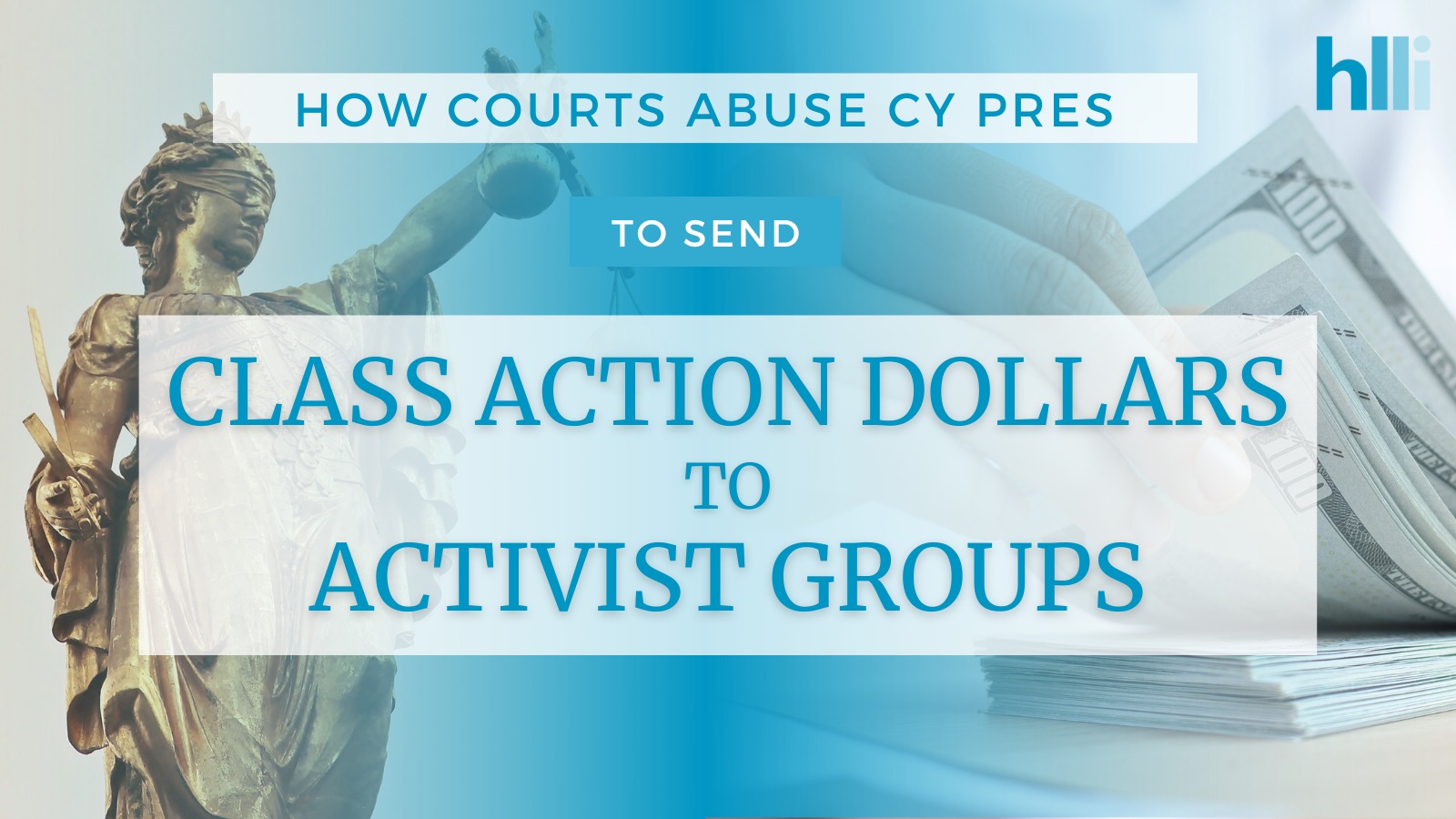 Each Giving Tuesday, Americans open their hearts – and their wallets – in droves to support causes that matter most to them. Last year, this tradition of generosity drove $3.1 billion in charitable donations in a single day.
Each Giving Tuesday, Americans open their hearts – and their wallets – in droves to support causes that matter most to them. Last year, this tradition of generosity drove $3.1 billion in charitable donations in a single day.
There is another form of charitable giving, which happens without much fanfare, each year. It is called cy pres, and it often results in money diverted away from people to whom it is owed and toward causes they may or may not support.
The philosophy behind cy pres is that, in instances where changed circumstances make it impractical or impossible to deliver funds to their original intended recipients, courts can allow the funds to be used for a benefit “as near as possible” the original purpose.
Cy pres is not inherently wrong when used appropriately. For instance, let’s say a charitable trust was created in the 18th century to fund railroad technology education at colleges and universities. Centuries later, very few colleges may be able to accept a gift that can only be used on such a narrow subject. Faced with the choice between using the funds for a non-exact purpose or not using the funds at all, a court may decide, under cy pres, that the trust may be used to fund aerospace education, since it closely aligns with the initial intent of the donor to advance knowledge of transportation technology.
Most instances of cy pres, particularly in class action lawsuits, are not so reasonable or benevolent. Settling parties often use this doctrine to further their personal political views over the interests of the settlement class.
In Hesse v. Godiva, the Hamilton Lincoln Law Institute successfully objected to the settlement’s attempt to direct cy pres to Public Justice Foundation, a group that supports far-left issues such as unfettered abortion access and forcing schools to allow boys in girls’ sports. Meanwhile, the settlement in a class action against the weedkiller Roundup distributed about $16 million to third parties, including the Center for Consumer Law & Economic Justice at the University of California, Berkeley, which engages in zero-carbon advocacy and supports mass student debt cancellation. In another class-action settlement involving a public-interest student loan forgiveness program, lawyers for Randi Weingarten’s American Federation of Teachers union obtained court approval to use the settlement funds to create a new organization whose goals just so happen to overlap with those of the union.
The same misplaced priorities motivated a settlement on Walmart DVD rentals to send more than $2 million to groups unrelated to the case, including the Geena Davis Institute on Gender in Media (HLLI also fought, successfully, to have the money sent to the settlement class rather than the unrelated organizations).
Class action settlements are intended to provide restitution to members of the settlement class, but irresponsible uses of cy pres mean that the people who were harmed will receive far less than they are owed, or no money at all.
In the JUUL Labs, Inc., class action settlement, plaintiff’s attorneys requested to have $30 million of the settlement fund sent to anti-vaping research and advocacy. As noble as the goal of such organizations may be, that $30 million rightfully belongs to the settlement class. HLLI appealed the award, and a judge agreed, directing the money back to the people to whom it is truly owed.
In re Google Inc. Cookie Placement Consumer Privacy Litigation attempted to secure a settlement that would send zero dollars to members of the settlement class. People whose privacy allegedly had been violated by Google’s use of cookies would never see a dime, but plaintiff’s attorneys would rake in $2 million, and another $3.4 million would be distributed to nonprofits chosen by a third party appointed by the court. HLLI objected to the proposed deal, and the court agreed and overturned it.
Settlement class members may have no idea that money is flowing to such organizations in their name and without their consent. Consumers should be aware of the funds they are owed, not kept in the dark while money they are owed gets diverted to other ends. HLLI is working to encourage more courts to recognize that the chief aim of a class action lawsuit is to right a wrong done to members of the class. Unfortunately, legal abuses have turned some class action lawsuits into cash cows for both plaintiff’s attorneys and third-party advocacy groups.
